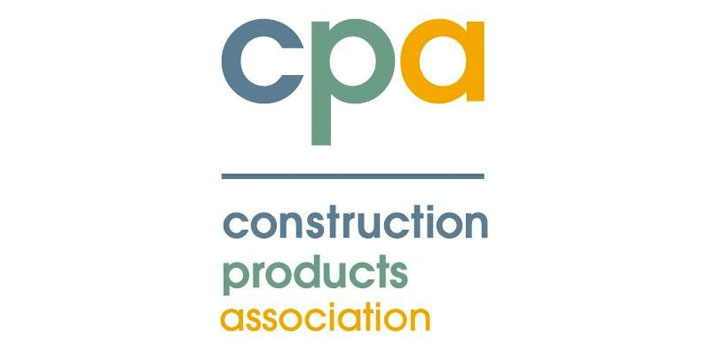
by Clair Mooney | 18 Feb, 2019 | Main News Feed
Are you planning skills training or a professional development courses in the next six weeks? If so we have funding available until 31 March 2019, offering FIS contractor members up to £2.5k in grant funding.
All short duration courses that are construction skills related e.g. Pasma, traffic banksman, commercial awareness for construction, and so on..
Doesn’t include office 365 training, first aid that you typically find across all other industries.
Must be CITB levy payers & FIS members.
Email marieflinter@thefis.org or call Marie Flinter at the FIS office on 0121 707 0077 for details. This will be offered on a first come, first served basis, so act now to avoid missing out.

by Clair Mooney | 15 Feb, 2019 | Main News Feed
This week’s EU Exit and Trade update from the BEIS Infrastructure and Materials team covers no-deal immigration arrangements for EEA nationals; simplified import customs procedures; the launch of the UK Mark to replace CE marking; an update on road freight and a reminder on data protection.
UK’s immigration arrangement for EEA nationals in a no-deal situation
On 28 January, the Home Secretary announced the plans for no-deal post exit migration and movement arrangements, including ‘European Temporary Leave to Remain’. This will apply to people arriving in the UK after 29 March in a no-deal scenario, not to those already here at that date. For EEA nationals already in the UK at that point, please refer to guidance on the Settlement Scheme. For proposals for the Immigration System post-2021, please look here.
A summary of the key facts:
- EEA citizens will be able to enter and leave the UK as they do now to visit, study and work (staying up to 3 months);
- the initial 3 months’ leave to enter for EEA citizens will be free of charge but applications for European Temporary Leave to Remain will be paid for. Fees will be set out at a later date;
- EEA citizens arriving in the UK who wish to stay longer than 3 months can apply for European Temporary Leave to Remain- they will be subject to identity, criminality and security checks before being granted permission to stay for three years;
- non-EEA family members who wish to accompany an EEA citizen under these arrangements will need to apply in advance for a family permit;
- Irish citizens will not need to apply for European Temporary Leave to Remain and will continue to have the right to enter and live in the UK under the Common Travel Area;
- European Temporary Leave to Remain does not give rights forthe EU Settlement Scheme mentioned above.
Guidance is available here and in the accompanying factsheet.
Simplified import customs procedures for no-deal
HMRC has announced that businesses will be able to use simplified customs declarations and postpone payment of duties under a Transitional Simplified Procedures (TSP) scheme if there is a no-deal Brexit (but there will still be additional information needed for controlled goods). The measures will apply to most businesses importing from the EU at roll-on-roll-off-ports. The measures would come into place from 29 March and be reviewed after 3 to 6 months. Businesses will be given 12 months’ notice if they are to be withdrawn. These transitional simplified procedures reduce the amount of information you need to give up front in an import declaration when the goods are crossing the border and also by deferring the payment of duty.
There are four key actions for traders:
- Register for Economic Operator Registration and Identification (EORI) number if you haven’t done so already at www.gov.uk/hmrc/get-eori.
- Check the guidance to see if you qualify and check which ports TSP applies to: www.gov.uk/hmrc/eu-simple-importing
- If it will work for you, sign up for TSP online.
- If tariffs apply to the goods that you import and you want to use TSP you will need to apply to defer any duties payable (HMRC will provide further details on this very soon) and have a financial guarantee by 30 June 2019 for any duties deferred
If you’re exporting, register for the National Export System at https://www.gov.uk/guidance/export-declarations-and-the-national-export-system-export-procedures
Non-VAT registered businesses should also go to www.gov.uk/hmrc/trade-with-the-eu for changes that affect them.
Prepare to use the UK Mark
On 2 February the Government published the design for the UK marking that will need to be affixed to certain products sold in the UK in the event we leave the EU without a deal. This would replace the CE marking. The CE marking is placed on specific products to show that they are compliant with the relevant EU regulatory requirements. In most cases the CE marking can be applied to products tested by the manufacturer. For some products, there is a legal requirement for the product to be assessed by a third-party assessment body (usually a ‘Notified Body’) to confirm they meet relevant the requirements. In a ‘no deal’ scenario, the EU will stop recognising the competency of UK-based Notified Bodies to assess products for the EU market.
Maintaining Access to the UK Market: The Government intends to reclassify UK Notified Bodies as UK Approved Bodies. These bodies will be eligible to assess products against relevant UK requirements and issue the new UK marking to compliant products to be sold on the domestic market. In most cases, manufacturers would not need to use the UK marking immediately in the event of the UK exiting the EU without a deal. Instead, manufacturers will be able, for a period of time, to continue to use the CE marking when placing their products on the UK market if their product meets the relevant EU requirements. This would include products that have had any necessary third-party assessment carried out by an EU-recognised body. The Government would consult businesses before taking a decision on when this period would end. However, for products subject to conformity assessment by a UK Approved Body, manufacturers will be required to affix a ‘UK Mark’ to the product to demonstrate compliance with requirement. To check whether you will need to use the UKCA marking please read the guidance on trading goods regulated under the ‘New Approach’ if there’s no Brexit deal.
Maintaining Access to the EU Market: Products being exported to the EU that currently require the CE marking will continue to require the CE marking to demonstrate compliance with the relevant EU requirements. UK manufacturers placing products on the EU market that require the CE marking will need to get their products assessed and marked by an EU recognised conformity assessment body or could arrange for assessments to be transferred to an EU recognised body before the UK leaves the EU.
Guidance on the use of the UK marking can be found here.
Road freight update
The Government will continue to license UK hauliers to the same high safety, environmental and operating standards as at present, and will require foreign hauliers operating in this country to do the same. Legislation about to be put forward by the Department for Transport will provide for continued access to the UK market for hauliers from the 27 EU member states in a no deal scenario. Over 80% of haulage between the UK and continental Europe is undertaken by EU hauliers.
On its side, the European Commission has proposed legislation that would allow UK hauliers basic rights to conduct operations to, from and through the EU for a limited period of nine months after exit, if there is no deal. The Commission’s proposal will need to be agreed by the European Council and European Parliament, and is being considered by both institutions urgently. This proposal is predicated on the UK granting equivalent access for EU hauliers here and the legislation mentioned above provides for that access. Depending on the outcome of these discussions, we will review the UK’s offer to EU hauliers.
The Government does not expect and has never intended to rely solely onEuropean Conference of Ministers of Transport (ECMT) permits for UK hauliers after we leave the EU.
On 25 January, The UK signed an agreement with Switzerland on the international carriage of passengers and goods by road. The agreement will ensure UK hauliers and commercial bus drivers can continue to drive to, from and through, Switzerland after the UK leaves the EU, as they do now. Further information can be found here.
Data protection
In the event that the UK leaves the EU on 29 March 2019 without a deal, UK businesses will need to ensure they continue to be compliant with data protection law. For UK businesses that operate internationally or exchange personal data with partners in other countries there may be changes that need to be made ahead of the UK leaving the EU to ensure minimal risk of disruption. For those that would be affected, early action is advised as changes may take some time to implement.
How personal data currently moves across the border
- Personal data is protected by the GDPR. This gives individuals rights over their data: to know who has it, to correct it, to delete it, to move it. Etc.
- The GDPR says that data can only be moved across borders if equivalent protections exist in the country where the data is going.
- At present personal data can cross borders as follows:
-
- Where it remains in the EU (because all EU countries must apply GDPR)
- Plus EEA states: Norway, Iceland, Lichtenstein, and other UK territories like Gibraltar.
- Countries where the EU Commission has determined there are adequate protections: Andorra, Argentina, Canada (commercial organisations), Faroe Islands, Guernsey, Israel, Isle of Man, Jersey, New Zealand, Switzerland, Uruguay and the United States of America (limited to the Privacy Shield framework) as providing adequate protection.
- If none of the above apply, such as when we send personal data to India, or Australia, then the data can only be sent where there are “standard contractual clauses” (SCC) or “binding corporate rules” (BCR).
- SCC and BCR essentially extend the GDPR rights to data moved to a third country jurisdiction.
- To note: SCC only covers certain data transfer relationships and BCR only cover data transfer within a single company.
What do businesses need to do?
They need to understand their data flows. Do they have affected cross-border personal data flows? Have they put in place Standard Contractual Clauses or Binding Corporate Rules?
The government published advice for business in September 2018:
https://www.gov.uk/government/publications/data-protection-if-theres-no-brexit-deal
The ICO (information Commissioner’s Office) provides some useful information:
ICO advice – good starter document with some links to more info
ICO Leaving the EU Six Steps – A breakdown of steps to take to prepare for EU exit
ICO tool for working out if SCC will work for you

by Clair Mooney | 15 Feb, 2019 | Main News Feed
We have seen further flurries of activity from the Civil Service this week as the likelihood of a No Deal increases. In terms of your planning, we are keeping the Brexit checklist up to date and recommend a focus on helping your team to understand the implication of Settled Status (applicable to those from the EU27 who arrived before March 29th). We also had an update this week on the European Temporary Leave to Remain, which will apply to those arriving after 29 March. This has been absorbed now into the checklist. You may already have seen the interesting report from Ranstaad that analyses the current mood of EU27 workers, the stat that jumps out is 1 in 5 are undecided as to whether they’ll stay or leave 81% wouldn’t consider leaving until after 29 March. More here.
The impact of delay clauses was also discussed at a BuildUK meeting this week and remains a concern. We continue to put pressure on Government to ensure that these are not applied through any public sector works and on the wider client audience to be reasonable about how they are imposed, but some legal wrangling may still apply. Remember FIS has a legal helpline that you can use. Do feel free to fire in any questions, concerns or comments to us and we will seek to build the answers into our ongoing work.
You can access the FIS Checklist here.

by Clair Mooney | 14 Feb, 2019 | Main News Feed
After Brexit on 29 March 2019, UK businesses that manufacture or import chemicals from the EU will have to register those chemicals to the new UK regulatory system – UK REACH – using its associated UK REACH IT system. In support of this new registration system DEFRA has been inviting individual businesses to participate in their Model Office testing programme for the new UK REACH IT system and now wish to extend this an invitation to the FIS membership.
Full details from DEFRA are below including the dates for the testing programme, together with important relevant information concerning the version of IUCLID to be used. If you are wishing to participate please email jessica.durkota@environment-agency.gov.uk or for further information contact REACH-IT@defra.gov.uk
UK REACH IT testing – Invitation to participate
The Model Office will be hosted at Alpha Tower, Birmingham, B1 1TT. We ask that you attend for one day of testing (09:30 arrival for a 10:00 start with wrap-up to complete by 16:00). Although we cannot provide remuneration for travel or subsistence, we will be providing refreshments and lunch on the day. The testing can only be conducted at the Model Office site as this will enable the concurrent testing of all processes from a system user and administrator perspective.
So the testing is as realistic as possible, we ask participants to bring:
• Your own laptops for access to your company email and a web browser (secure internet access is available by Wi-Fi)
• Copies of your REACH information. Any REACH dossiers for the Model Office are required in IUCLID v6.3, please inform us if your dossiers are in an older version of IUCLID as we can provide support in converting these to a more recent version.
The testing will be run on the dates below, please choose a date that is most suitable and let us know by responding to the address below:
Monday 25 February
Tuesday 26 February
Wednesday 27 February
Thursday 28 February
Friday 1 March
Monday 4 March
Tuesday 5 March
Wednesday 6 March
Thursday 7 March
Friday 8 March
We will be providing participants with a full welcome pack and joining instructions prior to the day. If you have any further queries please contact REACH-IT@defra.gov.uk

by Clair Mooney | 14 Feb, 2019 | Main News Feed
Members need to prepare themselves for the upcoming reverse charge VAT. This will see VAT being paid between construction firms ‘reversed charged’ which will have consequences for your cashflow and accounting systems.
The first public guidance has now been released and is available at https://www.gov.uk/government/publications/vat-reverse-charge-for-building-and-construction-services-guidance-note/guidance-note We urge all members to download a copy and take the time to read it. There will be lots more literature including example letters for subcontractors and example invoices as we approach the start date. Companies must not start reverse charging before the start date.
Reverse charge VAT will involve some decision making before an invoice is sent to a customer based on the nature of the work done and accounts departments will need to know whether the customer is VAT registered and whether the customer is CIS registered.
JTC has created a flow chart, which is similar to what members will use daily after October 2019.
Think about collecting your customers VAT registration numbers and CIS UTR now for projects that will run over into autumn 2019. There will be far more guidance and help as we get closer to the start – just think and be aware that change is happening.

by Clair Mooney | 14 Feb, 2019 | Main News Feed
Confused by HMRC’s Making Tax Digital (MTD)?
Liz Bridge at the Joint Taxation Committee has prepared an index and timeline to help you understand what Making Tax Digital really means, how it will affect you, quarterly reporting and any exemption rules. Find out more here in the latest edition of JTC Newsline.

by Clair Mooney | 14 Feb, 2019 | Main News Feed
Following the construction industry Brexit Contingency Planning Conference, the agreed actions covered were;
- The construction workforce, including skills and migration
- The import and export of goods
- The future regulatory regime and demonstrating compliance with this
- Communicating with Government regarding the key concerns of the industry about a no deal Brexit.
- In addition, it was also identified that some firms may need to take action to comply with data protection rules, so guidance is also covered.
Below is an update on the actions agreed, and further information on the timeline for taking this forward.
Workforce
The Skills Working Group of the CLC, Chaired by Mark Reynolds, has established a “virtual” Brexit Contingency Group to focus on short, medium- and long-term skills actions. The Group has already met and is in the process of agreeing a report that will include recommendations and actions. This will outline what industry should be doing, and what our asks are of the Government. The Group will meet again next week to refine the recommendations and actions, and will issue an interim draft on the 15 February, with the aim of concluding this work and issuing a final report by Friday 22 February.
Import and Export of Goods
Significant progress has been made on arrangements for import and export of goods since the conference which will reduce the potential impacts of a no-deal scenario, for those firms that have taken action and followed the guidance published by HMRC.
To prepare, both importers and exporters should register for a Economic Operator Registration and Identification (EORI) number at www.gov.uk/hmrc/get-eori.
Importers
HMRC announced on the 4 February that in the event of the UK leaving the EU without a withdrawal agreement, Transitional Simplified Procedures (TSP) will be applied to imports. These will apply for at least 15 months (they will be reviewed after 3 and 6 months and there will be a 12 month notice period prior to their removal). Once registered, firms will be able to transport goods into the UK without having to make a full customs declaration at the border, and will be able to postpone paying their import duties.
Importers will be able to register for TSP online from 7 February at www.gov.uk/hmrc/eu-simple-importing. An EORI number is required to do this. For further guidance, including which ports TSP applies to, please go to www.gov.uk/hmrc/eu-simple-importing.
Firms wishing to receive regular updates on developments can register for HMRC’s email update service at www.gov.uk/hmrc/business-support select ‘business help and education emails’, then ‘EU Exit’. Non-VAT registered businesses should also go to www.gov.uk/hmrc/trade-with-the-eu for changes that affect them.
However, there are some controlled goods (e.g. alcohol, tobacco or explosives) regarding which further information will be required before importing, and where licences and other import procedures may apply. Details of these can be accessed through the following link (https://www.gov.uk/government/publications/uk-trade-tariff-import-prohibitions-and-restrictions/uk-trade-tariff-import-prohibitions-and-restrictions).
Exporters
After registering for their EORI number, exporters should register for the register for the National Export System at www.gov.uk/guidance/export-declarations-andthe-national-export-system-export-procedures.
Firms should also consider appointing a customs agent to make declarations on their behalf, or if this is not the right solution for the firm, but it is a regular importer and exporter, ensure someone within the firm is trained to make customs declarations, and buy any specialist software required that can link with HMRC’s customs systems.
Tariffs
Firms should also review what tariffs would apply to products in the event of the UK leaving the EU without a withdrawal agreement. Guidance on what tariffs will apply, and information about tariffs on individual products can be found at https://www.gov.uk/government/publications/classifying-your-goods-in-the-uk-trade-tariff-if-theres-no-brexit-deal/classifying-your-goods-in-the-uk-trade-tariff-if-theres-a-no-brexit-deal.
Construction Products Regulations
The Construction Products Association (CPA) has worked with other stakeholders to produce technical notes on the Construction Products Regulation and Registration, Evaluation, Authorisation an Restriction of Chemicals Regulation (REACH) in the event of a no deal Brexit. These are attached/can be accessed on the CPA website at https://www.constructionproducts.org.uk/publications/technical-and-regulatory/brexit-and-the-reach-regulation-under-a-no-deal-scenario/.
General Data Protection Regulation
Some firms in the construction sector may need to transfer personal data with other organisations or subsidiaries in the EU after the UK leaves. Rules governing the collection and use of personal data (data which includes personal details of an individual, or which would enable an individual to be identified on the basis of this), are currently set at an EU-level by the General Data Protection Regulation (GDPR). Under GDPR rules, organisations are only permitted to transfer personal data outside the EU if there is a legal basis for doing so. Organisations which will need to receive personal data from other organisations in the EU will need to take action to ensure those organisations can send them this information without breaching GDPR rules. Guidance on the action’s firms should take to enable the continued flow of personal data has been published by the Government. Details of this can be accessed at https://www.gov.uk/government/publications/data-protection-if-theres-no-brexit-deal/data-protection-if-theres-no-brexit-deal.
Communication with Government
The Chair of the CLC will be writing to the Construction Minister, Richard Harrington, to summarise the conclusions of the Conference and set out the actions that the industry is undertaking to prepare for a no deal Brexit, and the support that we would like from the Government. A copy of the letter will be published on the CLC website.

by Clair Mooney | 7 Feb, 2019 | Main News Feed
The winners of the 2019 Fit-Out Futures Awards were celebrated at the FIS President’s Lunch in London on Tuesday.
The event saw 300 members and their guests come together to see the winners revelaed in the delighful surroundings of Plaisterers’ Hall. Congratulations to all our winners and the shortlisted entrants.
Apprentice of the Year
WINNER: John Taylor – Stortford Interiors
The judges commented that John was clearly a talented tradesman and that he was also changing attitudes internally about the positive benefits that an apprentice can bring to his company. John was also praised for his understanding of the importance of his work and the need to follow guidelines. He continues to develop as a fantastic example of why the modern apprenticeship system will shape our industry for the future.
RUNNER UP: Danny Beadle – Pexhurst Services
Danny was recognised for his commitment to all aspects of the day-to-day site role, as well as his dedication to learning and improving his skill-set.
Future Leader – sponsored by CCF
WINNER: Simon Broggio – Meronden
Simon is an exemplar of how someone can enter the construction sector as a labourer and with the right attitude and work ethic work their way up to take on a Level 6 Construction Site Managers course. He is already a natural leader and an asset to the finishes and interiors sector.
RUNNER UP: Richard Austen – Stortford Interiors
Richard was awarded runner-up due to his enthusiasm to adopt new ways of working and new technologies. He was also recognised for his ability to manage both his peers and his superiors.
Outstanding Employee
WINNER: Matt Taylor – Astins
With more than 18 years’ experience in the industry, Matt was recognised for his never-ending energy and professionalism for design and to the sector.
RUNNER UP: Ed Kelly – ETAG Fixings
Ed was commended for his exceptional reliability, quality of work, initiative and professionalism, as well as his commitment to Etag’s work values.
Lifetime Achievement Award – sponsored by CCF
Ray Deeks – G Cook & Sons
Ray was chosen as the recipient of this award for demonstrating a lifetime’s dedication to his trade. In particular, he was applauded for the amount of his own time he has committed to sharing his wealth of knowledge and experience with the wider industry.
The judges said: “We all owe Ray a vote of thanks for the legacy that he continues to leave.”

by Clair Mooney | 7 Feb, 2019 | Main News Feed
HMRC has announced that businesses will be able to use simplified declarations and postpone payment of duties under Transitional Simplified Procedures (TSP) if there is a no-deal Brexit (although there will be additional information needed for controlled goods). The measures will be reviewed after 3 to 6 months and businesses will be given 12 months’ notice if they are to be withdrawn.
Businesses can sign up for TSP online from 7 February at www.gov.uk/hmrc/eu-simple-importing but they will need an EORI number to do this. Further information, including which ports TSP applies to, is available at www.gov.uk/hmrc/eu-simple-importing. The list does include Hull, Tilbury, Dover, Immingham (Hull) and Felixtowe.
HMRC has written to all VAT registered businesses (copy letter here) so most construction firms and product manufacturers should have received this directly.

by Clair Mooney | 7 Feb, 2019 | Main News Feed
New regulations released in Scotland on 1 February 2019 mean that every household must have installed the following:
- A smoke alarm fitted in the living room or lounge and circular spaces such as hallways and landings
- Kitchens must have a heat alarm
- All these alarms will have to be interlinked so that they can be heard throughout the property
- Properties with fixed combustion appliances must have a carbon monoxide alarm fitted
These new reglations extend to all homes the same requirements that are currently in force for private rented property and new builds.
Responsibility for meeting these obligations will fall to home owners and landlords.
The cost is estimated to be £200 per household, but this will vary according to what alarms are currently in place and the type of alarms to be fitted.
These new regulations come into force in February 2021.
A copy of the Scottish government announcement can be viewed here.

by Clair Mooney | 1 Feb, 2019 | Main News Feed
The Construction Leadership Council earlier this week convened a meeting of over 100 industry leaders, to develop sector contingency plans for a No Deal Brexit. The conference brought together firms from across the sector, including construction contractors from across the supply chain, house builders, product manufacturing and professional services, as well as trade associations and key construction clients.
Meeting in the Institution of Civil Engineers, participants heard from a range of speakers, from the Construction Products Association, the Port of Tilbury and Government Departments, on issues including the potential impact of a no deal Brexit, the import and export of goods, migration policy and the regulation of construction products. This was followed by a discussion on the key impacts, and what companies of all sizes from across the industry can do to prepare for the possibility of a No Deal Brexit.
The following actions were agreed by participants:
- The CLC will be convening a group to address how the industry can recruit, retain and support foreign nationals within the UK construction workforce, and engages with the consultations on the Government’s Future Skills Immigration White Paper
- The CLC will work with trade associations and other bodies to understand the impact of changes to the rules on the import and export of goods within the supply chain. In the interim the CLC will encourage all construction businesses to initiate conversations with their supply chains and clients to prepare for potential disruption.
- The CLC will work with the construction products sector to promote and share guidance on potential changes to the rules on demonstrating compliance with product regulations following Brexit.
- The CLC acknowledges the challenges that preparing for a no deal represents at a business and project level. We will communicate to government the cost and complexity of mitigation and the potential impact on the sustainability and productivity of the industry. The CLC will be setting out its plans for follow up action shortly, and will be contacting all participants, and the wider industry about this event and the planned actions later this week.
Andy Mitchell, CLC Chairman said:
“Whilst a No Deal Brexit remains a possibility, firms in the construction industry have a responsibility to their employees, clients and the firms in their supply chain to plan for this. The potential impacts of a No Deal Brexit for the industry would be significant – and today marked the first steps in the industry acting together to mitigate these.
“I am pleased that we were able to collectively agree actions that will help ensure the industry has access to the workers, products and materials that it requires to deliver, and to manage any disruption.
“The Construction Leadership Council is committed to supporting the industry to help coordinate and work with those who attended – and the wider industry, to ensure that whatever happens, the industry will be as well-informed and well-prepared as possible“.
Iain McIlwee, attending on behalf of the FIS Membership stated: “This was a useful event, but it underpinned how unprepared we really are. We are a resilient and adaptable sector, but need time to prepare and manage what could be some pretty major changes. My immediate concern is the cost of potential delays due to flow of materials and products and how this will be managed within existing contractual frameworks. Force Majeure is “unforeseeable circumstances that prevent a party from fulfilling a contract” and expert advice seems to interpret this to say that Brexit was not unforeseen and hence provides little protection. In debate it was suggested that these costs would be “borne and passed on” by the major contractors, which is not what the supply chain wants to hear. This is a point we are following up with BEIS and through both Build UK and CPA. The CLC is calling for the supply chain to pull together and this is certainly something that we need to manage. We will continue to flag this and other considerations in our Brexit Checklist and ask all members to raise any concerns they have so that we ensure we are leaving no stone unturned in helping our members adjust to our new normal.”
You can download the slides from the event below:

by Clair Mooney | 1 Feb, 2019 | Main News Feed
Recruiting safely and fairly – employing ex-offenders to address the skills gaps in construction
Enterprise Centre, Coventry University Technology Park,
Puma Way, Coventry CV1 2TT*
Thursday 14 March 2019, 09:00 – 13:00 (followed by networking lunch)
Facing a relatively low unemployment rate, and a tightening labour market, many employers in the construction industry are struggling to find people with the right talent, skills, abilities and mindset to fill their vacancies. Some also struggle to recruit and retain talent from excluded groups when accomplishing their S106 outcomes.
Over 11 million people in the UK (around 20% of the workforce) hold a criminal record. Many of these individuals may have committed relatively minor offences, come from disadvantaged backgrounds and have a wide-range of skills and abilities – yet they face immense barriers to working in construction.
Many employers also struggle to understand their legal rights and responsibilities when considering applicants from this vast potential talent pool. Some employers worry about a perceived impact on insurance, securing certain contracts or even reputational risks. Now, more than ever, employers need specialist support to navigate this complex area.
The Mind the Gap (MTG) Project is a three-year initiative commissioned by the CITB. A consortium of partners, led by Lendlease, aims to reduce skills gaps and improve S106 outcomes by providing construction industry employers with the knowledge, skills, training and support they need to recruit serving prisoners, offenders on licence and other people with criminal records who are motivated to work.
Nacro, one of the MTG partners, and a leading social justice charity is delivering a free half-day safer recruitment training session for HR professionals and others responsible for recruitment and retention decisions, to equip them with the knowledge and practical resources needed to confidently recruit ex-offenders, ensure their processes comply with recent changes to legislation and manage and mitigate any potential risks involved.
Who is it for?
HR professionals with responsibility for recruitment decisions, policy developments and workforce planning. It will also be relevant to in-house employment lawyers; as well as those with responsibility for safeguarding, staff retention and equality and diversity matters.
Benefits
By the end of this session you will:
• Understand how to recruit confidently and effectively from a talent pool of 11 million people
• Be able to improve the diversity of your workforce
• Understand how to minimise any potential or perceived risks that might be involved
• Learn how to avoid unnecessary failed recruitment costs
Learning objectives
▪ Understand and apply the relevant legislation that impacts upon recruitment and retention of people with criminal records (e.g. ROA 1974, DPA 1998/ GDPR 2018)
▪ Learn how to deal effectively with disclosure of criminal records
▪ Gather the relevant information in order to inform the risk assessment process.
▪ Understand how to interpret criminal record information in order to inform risk assessment processes
▪ Understand how to risk assess applicants/employees with criminal records in the context of safe recruitment and reputational business risks.
RSVP
To reserve a place or find out more information about the workshop, contact Dominic Headley on mobile: 07399 814 199 or email: dominic@dominicheadleyassociates.co.uk
*There is parking available at the venue.

by Clair Mooney | 29 Jan, 2019 | Main News Feed
CE Marking is driven by the Construction Products Regulations (CPR), which will have to change after Brexit. Thankfully, if you manufacture or import products for the UK market where CE Marking is mandatory (i.e. there is a Harmonised European Norm (hEn)) changes will be minimal for most. For products placed on the UK market after exit day there will be an equivalent UK Mark available if you use a UK Approved Body. If you use an EU Recognised notified body you can continue to use the CE Mark. If you are exporting to the EU, you will be required to use an EU based notified body. It is vital that you talk to your current notified body to understand how there status and how this will impact your product marking requirements. FIS and our umbrella body Construction Products Association will continue to monitor and report on any change in this area.
Information is included in our Brexit Checklist available here and MHCLG are also providing guidance specifically on the CPR here.

by Clair Mooney | 25 Jan, 2019 | Main News Feed
Respondents to the CPA State of Trade Survey Q4 2018 experienced a strong end to 2018, with 27% of heavy side manufacturers and half of light side manufacturers reporting a rise in sales. Growth in factory output is anticipated to rise further in the opening quarter of 2019, with 64% of heavy side firms and 38% of those on the light side expecting an increase in sales in the January-March period.
Members can read the full report here.

by Clair Mooney | 25 Jan, 2019 | Labour, Main News Feed
The Home Office has published the future skills-based immigration system white paper which sets out the Government’s plans to introduce a new single immigration system, ending free movement.
Through Build UK, FIS has supported this important piece of work and we would like to thank all of our members who took the time to respond to the questionnaire. The report identifies occupations that are experiencing, or may experience shortages, of available staff in the UK construction sector.
Helen Yeulet, FIS skills delivery director said: ‘It is concerning, but not surprising to see a number of our interiors trades, pulled out in the list of “severe difficulties now” against the back drop of Brexit looming, with Drylining an obvious highlight,. We will be working with Build UK and other trade bodies to inform MPs and the relevant Ministers to ensure that the implications are understood.
Our views on the recommendations from the Migration Advisory Committee are clear, they simply don’t address the very real problem we face in terms of delivering the skills we need in the numbers we need in a realistic timeframe. The supply chain absolutely understand the need to invest and develop our workforce and we have a very busy programme doing this, but setting arbitrary triggers around qualifications and salaries around need and demand makes no sense at all, creating a real risk to the construction sector.’

by Clair Mooney | 25 Jan, 2019 | Main News Feed
FIS is working with Build UK on the new industry pre-qualification (PQ) system, which is due for soft launch in March. When it is rolled out later this year, it is anticipated that companies will be audited once a year by a recognised assessment body and this will be accepted by clients and contractors which will not specify a particular assessment body. For full details click here.
As part of ongoing work it would be useful to establish which PQ systems are being used. Please complete the poll below.

Loading ...

by Clair Mooney | 21 Jan, 2019 | Main News Feed
If you’re an EU citizen, you and your family will be able to apply to the EU Settlement Scheme to continue living in the UK after 30 June 2021. If your application is successful, you’ll get either settled or pre-settled status.
You may be able to stay in the UK without applying – for example, if you’re an Irish citizen or have indefinite leave to remain (ILR).
The EU Settlement Scheme will open fully by 30 March 2019. You may be able to apply now if you meet the criteria. The deadline for applying will be 30 June 2021 (NB: The deadline for applying will be 31 December 2020 if the UK leaves the EU without a deal).
When you choose to apply may depend on your circumstances.
More here: https://www.gov.uk/settled-status-eu-citizens-families

by Clair Mooney | 21 Jan, 2019 | Main News Feed
According to the latest CPA forecast, construction output is forecast to remain broadly flat in 2019 before growth of 1.6% in 2020 (assuming a revised Brexit Withdrawal Agreement that enables the UK to enter an implementation period or a delay to Article 50 to allow a renegotiation with the EU).

by Clair Mooney | 11 Jan, 2019 | Main News Feed
After careful consideration, the shortlist for the FIS Fit-Out Futures Awards has now been confirmed.
The standard of entires into this year’s Awards was extremely high, so congratulations to the individuals who made the shortlist and thank you to everybody who entered. The winners in each category will be announced at the President’s Lunch on 5 February 2019.
A special thanks goes out to our judges who gave their time to look closely at the nominations.
Apprentice of the Year
Danny Beadle – Pexhurst Services
Charlie Hazeltine – Pexhurst Services
John Taylor – Stortford Interiors
Future Leader – sponsored by CCF
Richard Austen – Stortford Interiors
Simon Broggio – Meronden
Outstanding Employee
Ed Kelly – ETAG Fixings
Matthew Sexton – British Gypsum
Matt Taylor – Astins
Chloe Jones – Nevill Long
Lifetime Achievement Award – sponsored by CCF
Ray Deeks – G Cook & Sons
Mick Jacznik – BDL Group
Robert Allen – British Gypsum

by Clair Mooney | 20 Dec, 2018 | Main News Feed
FIS strives to drive up quality, productivity, safety and sustainability by working with its members and this project ticks all these boxes.
The Health and Safety Executive (HSE) are on a mission to reduce Musculoskeletal Disorders (MSD) in site operatives and have identified that dryliners are particularly prone to MSDs largely due to manually handling 1200mm wide plasterboards; often by their own, and despite efforts to address the issue it persists. Working closely with Astins as the lead contractor, FIS along with Skanska, Knauf and the HSE who are part of a working group looking at how to address this, have produced a report based on a pilot project using a 900mm width plasterboard.
The report compares data from two similar projects one using 900mm boards and one using 1200mm plasterboard – the findings show a 33% reduction in plasterboard waste; significant improvement on productivity especially during second fix (62% improvement), shoulder muscle stress reduced by 30% and relatively equal on overall CO2 emissions as well as an overall cost benefit. This paper discusses the journey and potential benefits of using 900mm boards and concentrates on the practical application of the theories raised during the investigation.
The results are encouraging.To find out more click here.















